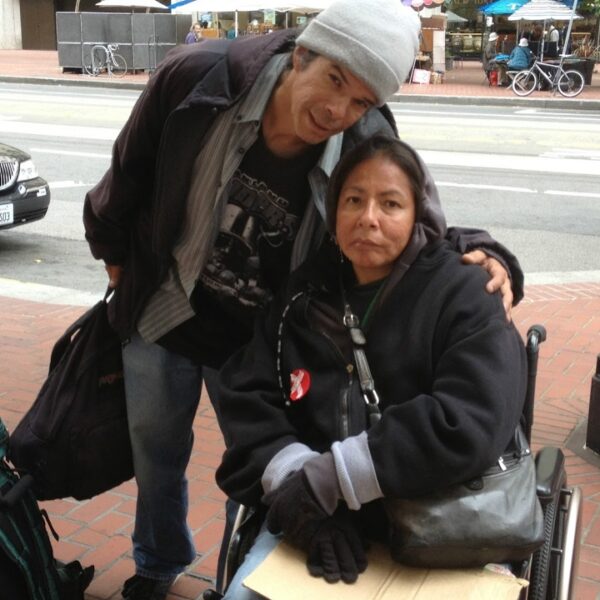For many in North America and beyond, rent relief is still out of reach.
As finances are compromised, and household futures fracture in the wake of a staggering health pandemic, many will suffer. Suffering could, and already does look different for many.
In Ontario, home to 14.57 million people, Doug Ford’s Progressive Conservative Party has a majority mandate. The government rose to prominence in 2018 on a platform of “moving Ontario forward.” Intense focus was placed on building new homes and removing legislative barriers that developers and property owners viewed as cumbersome.
One of those areas of focus including the easing of eviction protections.
According to the Ontario Landlords Association, the pre-existing eviction legislation was unfair. It made it difficult to remove people from their homes for various reasons, including delinquent rent payments.
The Ontario Landlords Association members even appealed to Canadian media for the ability to hire “private Bailiffs”, lauding the decision as welcomed by small landlords.
“We made it clear the eviction process takes months … small landlords need rent paid in order to run our rental businesses … landlords need rent in order to survive. We need to speed up evictions in Ontario!” They proclaimed.
Legislators heard their concerns and legislation to ease evictions followed. While some of the changes made sense in modernizing the system, there were concerns. With the changes to legislation pending, anxiety looms among tenants who were already facing climbing rents, “reno-victions,” and a growing cost of living.
Landlords said legislation that allowed for evictions to take up to six months was a significant obstacle for their industry. They pushed for proposed and pending efforts to expedite the process.
“The Ontario system is broken and needs to be fixed. Evictions for even simple non-payment takes months and months. Try going to McDonalds, order a Big Mac and fries, and walk out without paying,” read an OLA statement. “But in Ontario tenants can simply refuse to pay (and tenants get every opportunity to pay months later and still stay in your rental while you wait for a Hearing and the Sheriff).”
Then the uncertainties of the COVID19 pandemic hit Canada.
As provincial and federal counterparts attempted to co-align their efforts, dramatic actions were swiftly enacted. On a federal level, mortgage deferral programs were administered quickly.
According to the Canadian Mortgage Housing Corporation, programs were open for emergency application.
“(W)ith the COVID-19 outbreak, we are allowing lenders to offer deferred payments for insured mortgages,” a statement read.
This necessary action, meant to stabilize CMHC owned mortgages, would allow many homeowners and private landlords to defer their mortgage payments as the pandemic played out.
Despite legislative announcements meant to ease consumer worries, no clear solutions were offered to tenants.
As the situation developed, the province of Ontario made significant efforts to change course. Pending legislation was put on the backburner. All existing evictions were put on a temporary hold.
A Canadian Broadcasting Corporation report stated, “Tribunals Ontario is reviewing pending eviction matters in light of the rapidly evolving circumstances related to COVID-19 and no new eviction orders will be issued until further notice.” Furthermore, “sheriff’s offices have been asked to postpone any scheduled enforcement of eviction orders.”
This change in course may be creating problems for public and private sector landlords alike who had been counting on the modernized legislation to move the needle forward. However, the displacement of potentially vulnerable populations in the midst of a health crisis required this action.
That said, all that glitters is not gold.
Tenants who fail to pay their rent in a timely manner may not face immediate eviction. That does not mean that tenants are being offered the same concessions that property owners or landlords might be eligible for.
According to an article in the Toronto Star, the “COVID-19 information for landlords” Ontario website did lay out provisions that could complicate situations for at-risk tenants.
“Landlords can give tenants an eviction notice, but eviction hearings and orders are on hold except for urgent disputes such as those involving illegal acts or serious safety concerns.”
This acknowledgement confirmed that the Ford government halted Landlord and Tenant Board hearings, categorically meaning no new evictions.
Worth clarifying is that landlords can still take legal steps to evict a tenant who may not be aware of what additional steps are required for a full eviction.
“By the province allowing for eviction notices to continue, it means that tenants are not only living through a public health crisis, they are also living month-to-month with an ongoing financial threat,” said Toronto City Councillor Josh Matlow.
Ontario continues its efforts to keep people sheltering in place. That said, there are still varying degrees of success.
What is most intriguing about these directives is the rapid 360-degree approach to provincial tenant rights, and tenant support efforts.
On April 24th, the Ontario government took yet another step forward to challenge the federal government in aligning residential relief efforts.
In response to a federal announcement offering additional support to small businesses, Premier Doug Ford said the federal-provincial program is great news. It will see the province spend $241 million to help lower rents for small businesses, who are called the “backbone of our economy.” He then encouraged the federal government to assist with residential rent relief efforts.
Steve Clark, Ford’s Minister of Municipal Affairs and Housing, later released an open letter to federal Minister Ahmed Hussen. The letter encouraged swift action as another month neared its end. Clark maintained that the provincial government would assist with supporting and administering a rent relief program, but believes that this should come from federal directives and both government coffers.
“When these families are forced to choose between food and rent, it also impacts Ontario landlords and the stability of our rental housing sector,” Clark wrote.
While responses from federal ministry staff would cite the existing Canada Emergency Wage Subsidy, the CMHC mortgage deferral program, and the Canada Emergency Response Benefit, no concrete solutions have been offered.
There is still no comprehensive tenant relief package. Instead, landlords who have mortgages with the Canadian Mortgage and Housing Corporation are eligible for deferral programs and additional relief measures, while many tenants still risk receiving eviction notices.
Will this situation improve before June? Only time will tell.













